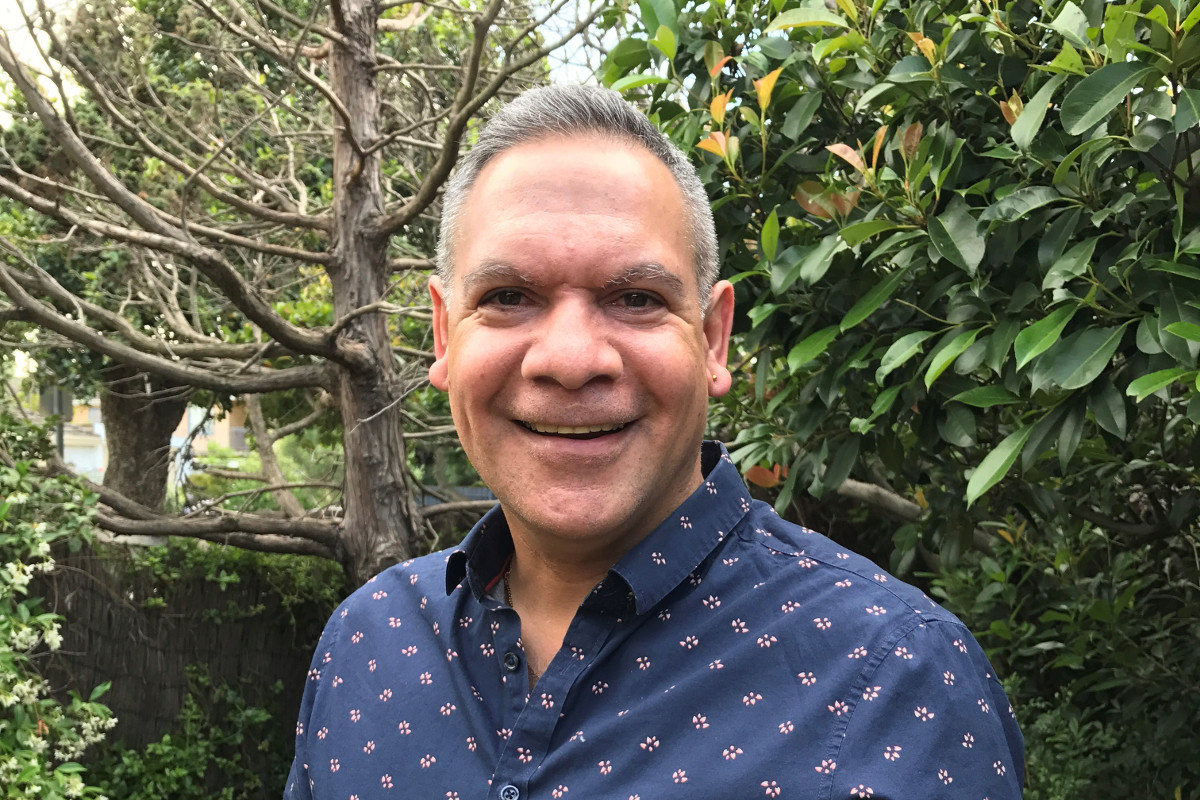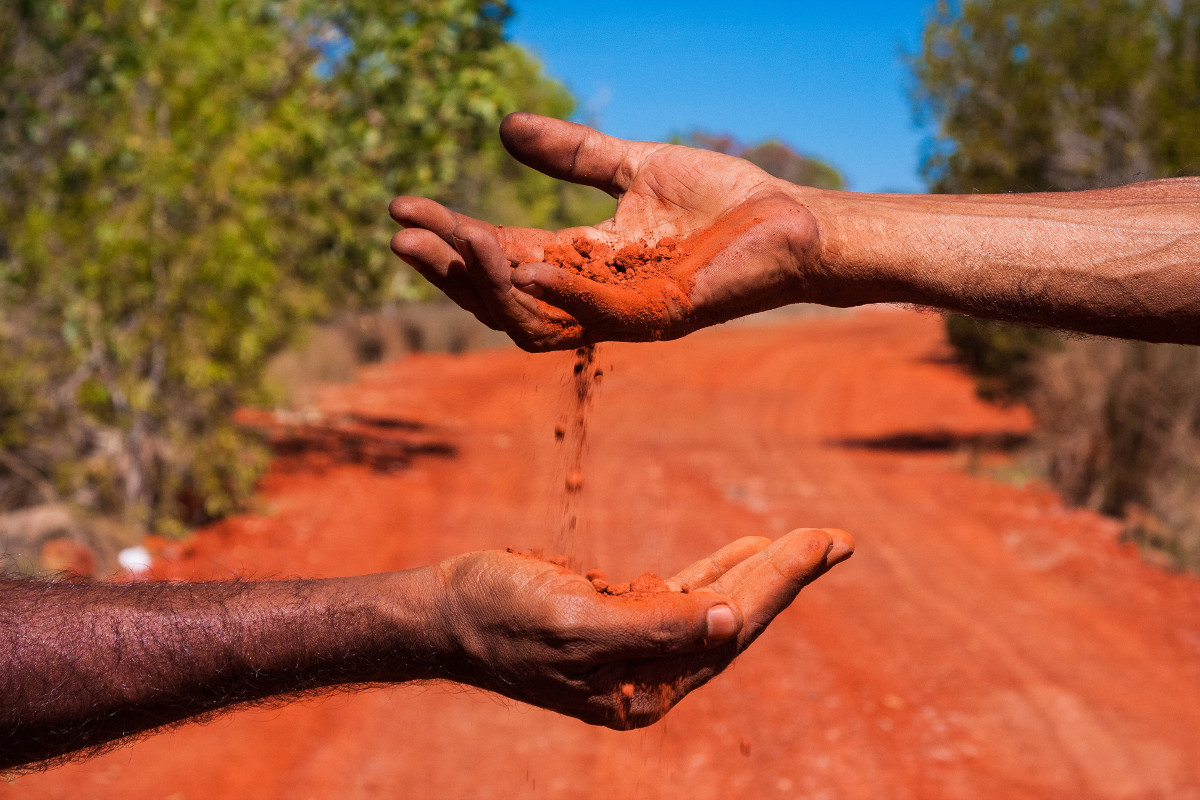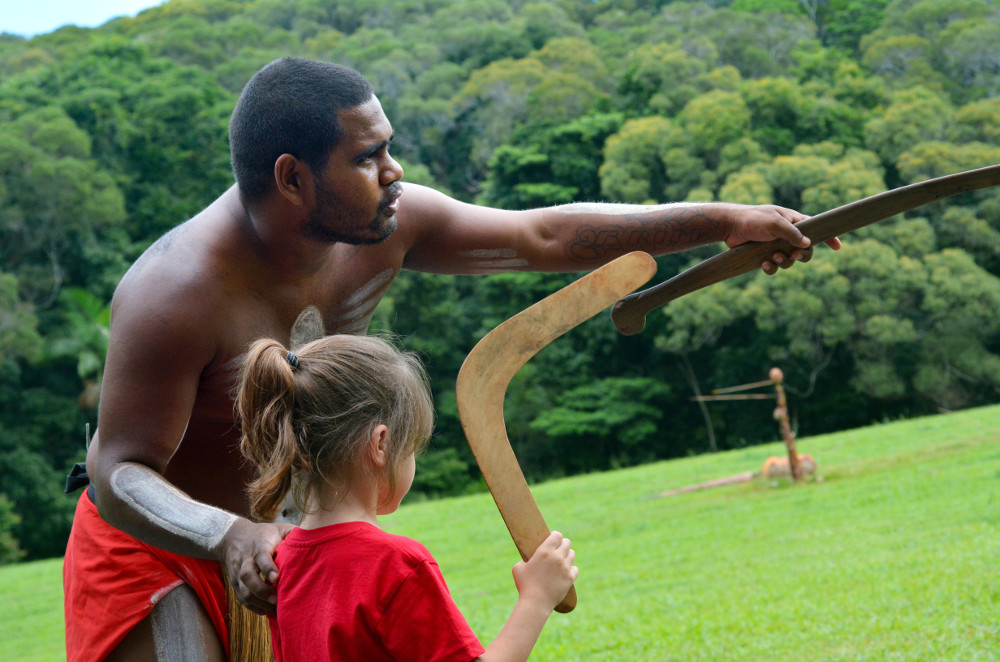How much do you know about the land you’re on?
For far too long Aboriginal and Torres Strait Islander culture has sat in the background covered up by colonisation. Only now, thanks to the recent publication of Dark Emu by Bruce Pascoe and other research projects, do we know about their history pre-colonisation. Whether that be their solid and thriving communities, their sewed fields and fished waterways, their politics and customs. A deeper narrative compared to the “hunter-gatherer” label we’ve put onto Indigenous Australians for far too long.
But more needs to be done, according to Eddie Moore – managing director of Nyuka Wara Consulting which aims to enlighten people and businesses about Aboriginal culture. And to help, Eddie’s asking you to show your ‘Signs of Respect‘ for the land you’re on.

Eddie Moore. Image: Supplied
“‘Signs of Respect’ is about people going out and doing a bit of research on the country where they live – it could be Wurundjeri land, it could be Boonwurrung land or Wemba Wemba country where my mob are up in Swan Hill,” Eddie said.
“And then people can create a sign – it can be paper, on a canvas or on bark – and put it up in your front yard. Be proud to know that you’re sharing the country that you’re on.”
Not only would this help bring a closer understanding of and connection to Aboriginal and Torres Strait Islander culture, but it also has the power to uplift the Aboriginal community.
“When we see the Aboriginal flag flying from different buildings, like hospitals and police stations and schools and universities, we see it as a sign of acknowledgement, of recognition,” Eddie said. “It does a lot for your soul.
“‘Signs of Respect’ is a step towards reconciliation for Aboriginal and non-Aboriginal people. I think that’s part of the journey we all need to go on, and this is just one element of how we can try and educate people to be more aware of Aboriginal culture – in particular, the traditional lands we all live on.”
Connecting Through Land

Red sands Aboriginal Culture. Photographed by SBourges. Image via Shutterstock
According to Eddie, Aboriginal people want to share their culture and history with Australians and celebrate their culture with them.
“It would be really nice if they could understand the beauty of it, understand the significance of it, understand what that deep feeling is to be connected to your culture.”
Connection to country and culture is a powerful tradition for Aboriginal people, it’s what they learn as they grow up. But what does it mean to be connected to the land?
“It’s not just a spot on the map,” Eddie answers. “It actually means something, when you’re connected to it and you’re part of it.
“So, when you think about the rivers, [and] the mountains, [and] the trees and the animals, there’s that connection there that not many [non-Aboriginals] understand.
“We, Aboriginal, people have our own totems and it’s connected to an animal, and that animal has a significant meaning to us as individuals. We all have individual ones.
“Some of those totems are our protector, our guide and protector watching over us. And some of those totems have meaning in the Dreamtime, about how the land was created.”
Connecting Through Differences

Aboriginal man showing girl how to throw a boomerang. Photographed by ChameleonsEye. Image via Shutterstock
“In the beginning, when the first settlers arrived, Australia was declared ‘terra nullius’ (meaning nobody owned the land) and that wasn’t correct,” Eddie said. “Right up until 1992, believe it or not, when Eddie Mabo won the high court case, ‘terra nullius’ was right up till then.
“We need to move past what’s happened – we won’t forget it, but we all need to move past it – and the only way is with acknowledgement and recognition,” Eddie said.
But it’s hard when too many political pundits are telling Aboriginals to “get over it“. Because just like any problem we face, the first step is recognising that there is a problem. Only then can you work on righting the wrongs.
“You know, we’re all from different walks of life, we all have our own different beliefs and systems and protocols that we all live by,” Eddie said. “People need to be open to listening and learning about Aboriginal people without being judgmental.
“Cause you always want something different from a cultural group. Some things are hard to accept, but I think it’s important for people to be open to listening and learning and putting their culture aside.”
It’s what Eddie had to do when he travelled around Australia, learning about the different Aboriginal cultures that make up this vast land.
“I mean, I don’t know every single Aboriginal cultural group in Australia,” Eddie said. “I can’t be expected to, and I don’t expect anyone else to. But you’ve [got to] take yourself on a bit of a journey of awareness and understanding. Understand where our cultures have come from and where they are now, and where we all need to be as a nation. That’s important.
“Acknowledgement and recognition are what will bring Aboriginal and non-Aboriginal people together.”
Showing your ‘Signs of Respect’
- Signs of Respect shown by Kim Handley. Image: Supplied
You might already know what Aboriginal land you are on – like Sydney’s Eora Nation and Melbourne’s Boonwurrung and Woiworung. If not, check out this map on AIATSIS. When you know, take a journey online and learn about them.
And don’t forget to show your ‘Sign of Respect’ on social media to get other Australians involved, with the hashtag #SignsOfRespect.
We’ve already made it this far, so why not keep going?
“People are starting to understand the traditional lands that they live on,” said Eddie, “about getting to know a bit about where you live, the history.”
And this growing understanding is bridging the connection between Indigenous and non-Indigenous Australians.
“It’s important that we start to build those relationships,” Eddie said. “People need to keep educating themselves, keep going out and being curious; that’s what we need to do.
“It’s important that we start to build those relationships.”
For more information about ‘Signs of Respect’, visit Culture Up.
We acknowledge the traditional owners of country throughout Australia and recognise their continuing connection to land, waters and culture. We pay our respects to their elders past, present and emerging.


